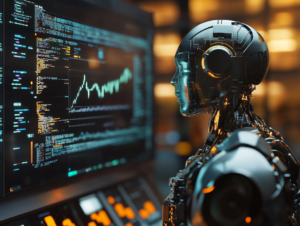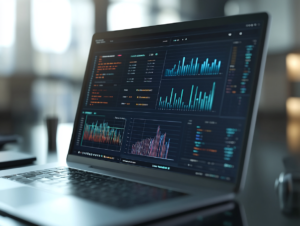Are You Ready for the AI Revolution?
Artificial intelligence (AI) is set to revolutionize various markets, bringing both opportunities and challenges. As AI advances, businesses and policymakers must prepare for these changes. How can we navigate the AI-induced market disruption and ensure a smooth transition?
The Transformative Impact of AI on the Labor Market
AI is expected to significantly impact the labor market, potentially affecting approximately 300 million jobs globally. While AI may lead to job displacement, it also offers opportunities for new job creation and enhanced productivity. High-skilled white-collar jobs are particularly susceptible to AI’s influence, highlighting the need for proactive workforce adaptation.
- Job Displacement and Creation: AI can automate routine tasks, leading to job displacement in specific sectors. However, it also creates new roles in AI development, data analysis, and AI ethics, requiring a shift in workforce skills.
- Sectoral Impact: Different sectors will experience varying levels of disruption. For instance, AI adoption will likely make significant changes in finance, health care, and customer service.
Boosting Productivity and Economic Growth with AI
AI has the potential to boost productivity and drive global economic growth. According to the International Monetary Fund (IMF), AI can enhance various sectors, from manufacturing to services, by automating routine tasks and enabling smarter decision-making. The IMF’s AI Preparedness Index helps countries assess their readiness for AI adoption, focusing on digital infrastructure, human capital, and regulatory frameworks.
- Productivity Gains: AI can streamline operations, reduce errors, and enhance decision-making, leading to significant productivity gains across industries.
- Economic Growth: By boosting productivity, AI can contribute to overall economic growth, increasing gross domestic product (GDP) and improving living standards.
The Role of Reskilling and Upskilling in Workforce Adaptation
Preparing the workforce for AI-induced changes is essential. Reskilling and upskilling programs can equip employees with the skills needed to thrive in an AI-driven economy. Successful initiatives, such as targeted training programs and partnerships with educational institutions, can help bridge the skills gap and ensure a smooth transition.
- Reskilling Programs: Offering training in AI-related fields, such as data science and machine learning, can help workers transition to new roles.
- Upskilling Initiatives: Enhancing existing skills, particularly in areas like critical thinking and complex problem-solving, can make the workforce more adaptable to AI advancements.
AI in Marketing: Embracing Change for Operational Efficiency
AI is transforming marketing by enhancing operational efficiency and improving customer engagement. Marketers must embrace AI to stay competitive, fostering a culture of experimentation and continuous learning. Ethical considerations, such as transparency and fairness, should also be addressed to build consumer trust.
- Operational Efficiency: AI can automate marketing tasks like data analysis and customer segmentation, allowing marketers to focus on strategic activities.
- Customer Engagement: AI enables personalized marketing campaigns, improving customer experience and driving engagement.
Policy and Governance for Ethical AI Deployment
Effective policy and governance frameworks are crucial for managing AI’s impact on society. Policy makers should develop ethical guidelines to ensure AI is deployed responsibly, balancing economic benefits with social equity. Comprehensive social safety nets and retraining programs can support workers displaced by AI.
- Ethical Guidelines: Developing clear ethical standards for AI development and use can prevent misuse and ensure fairness.
- Governance Frameworks: Establishing oversight bodies and regulatory frameworks can monitor AI deployment and address ethical concerns.
Future Trends: Preparing for an AI-Driven Economy
Looking ahead, businesses and policymakers must stay informed about emerging AI trends. By anticipating changes and investing in human capital, they can navigate AI’s challenges and opportunities. Proactive planning and strategic investments are crucial to building a resilient workforce for the AI era.
- Emerging Trends: Keeping up with AI advancements, such as autonomous systems and AI ethics, can help organizations stay competitive.
- Human Capital Investment: Investing in education and training programs can ensure a steady pipeline of skilled workers ready to take on AI-related roles.
Building a Resilient Workforce for the AI Era
The transformative power of AI comes with significant responsibilities. To stay ahead and ensure successful AI integration, join our AI Profit Pulse community. Gain access to exclusive insights, peer discussions, and updates on the latest trends in AI.
Enhance Your AI Strategy: Join our AI Profit Pulse community today and take your business strategies to the next level with comprehensive insights and best practices.











